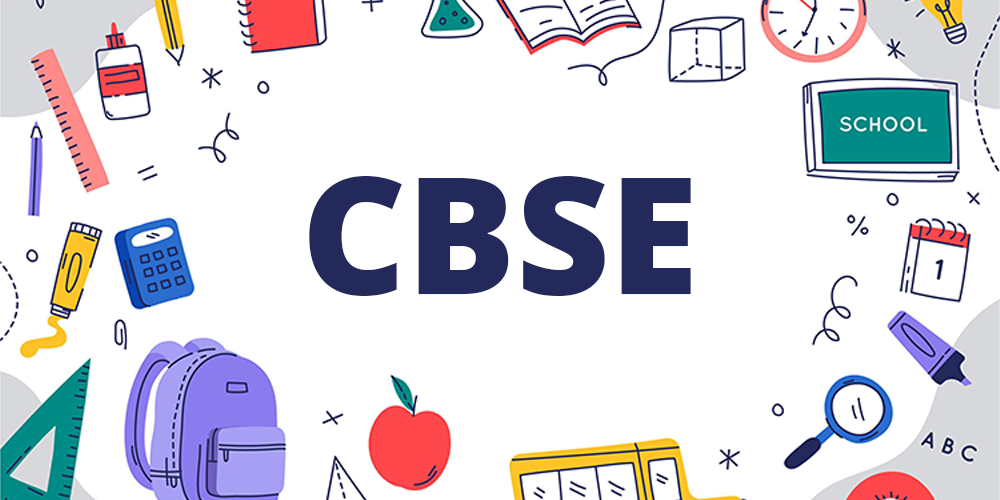CBSE Announces Plan for Two Board Exams per Year Starting 2025-26

New Delhi, February 19, 2025 - The Central Board of Secondary Education (CBSE) has unveiled a groundbreaking reform in its examination policy, introducing the possibility of conducting board exams for Classes 10 and 12 twice a year starting from the academic year 2025-26. This ambitious plan seeks to offer students a second opportunity to enhance their performance, potentially alleviating the high-stakes pressure associated with the traditional single annual board examination.
Objectives of the Reform
The primary objective of this reform is to provide students with a safety net, allowing them to take the better of the two examination results. This approach is intended to:
- Reduce Exam Stress: By offering multiple chances, students might feel less burdened by the fear of underperforming in a one-time exam scenario.
- Enhance Learning: Encourage a more continuous learning process rather than cramming, as students prepare for two examination cycles.
- Global Alignment: Align with international educational standards where multiple assessments are common, aiming to prepare students better for global competitiveness.
Implementation Details
According to CBSE officials, the structure will remain annual, with no shift towards a semester system. Here are the key points of how this will work:
- Two Examination Windows: The first set of exams will be scheduled at the usual time in February-March, with a second session planned later, potentially in May-June, to give students adequate time to prepare.
- Best Score Counts: Students' final scores will reflect the highest marks obtained in either of the two exams, ensuring that the first attempt does not disadvantage them.
- Curriculum and Syllabus: The curriculum and syllabus will remain unchanged, focusing on the same content for both examination sessions.
Community Reaction
The announcement has elicited a spectrum of reactions:
- Support from Educators: Many educators welcome this change, viewing it as a step towards a more humane and flexible educational system. "This initiative could significantly lower the anxiety levels among students, promoting a healthier learning environment," commented Dr. Rajesh Kumar, a principal of a CBSE-affiliated school.
- Concerns from Parents: Some parents, however, are skeptical about the increased pressure due to additional preparation time. "While the idea is good, we worry if this might not just double the stress for our children," expressed Meena Patel, a parent of a Class 10 student.
- Student Perspective: Students have mixed feelings; some see it as an opportunity to excel, while others are concerned about the logistics of managing two major exams in one academic year.
Looking Ahead
CBSE has indicated that the draft policy will be open for public consultation soon, allowing for feedback from all stakeholders before the implementation phase. This open dialogue is expected to refine the plan, addressing concerns and incorporating suggestions for a smoother transition.
Introduction of Global Curriculum for Foreign Students
In addition to the dual examination policy, CBSE is set to introduce a global curriculum specifically tailored for foreign students by the academic year 2026-27. Here are the detailed aspects of this initiative:
- Purpose: The global curriculum aims to make CBSE schools more attractive to international students, fostering diversity in classrooms and preparing Indian students for global interactions. This aligns with the National Education Policy's (NEP) 2020 vision of internationalizing education in India.
- Curriculum Design:
- Core Subjects: The curriculum will include core subjects like Mathematics, Science, English, and Social Studies, but with a global perspective, incorporating international case studies, global issues, and cross-cultural learning.
- Elective Courses: Electives will be offered that focus on global citizenship, world languages, and international business studies, providing students with a broader educational experience.
- Assessment: Assessment methods will be adapted to include project-based learning, presentations, and collaborative assignments, reflecting global educational trends.
- Cultural Integration: Special emphasis will be placed on cultural exchange programs, allowing foreign students to immerse in Indian culture while sharing their own, promoting a multicultural educational environment.
- Certification: Students completing this curriculum will receive a certification that is recognized internationally, aiding in their transition to global universities or into international career paths.
- Infrastructure and Faculty Development: Schools will need to upgrade facilities and train teachers to handle the diverse teaching requirements, ensuring they can deliver the global curriculum effectively. Workshops, international certifications for teachers, and exchange programs for educators are part of this development.
- Pilot Phase: Before full implementation, a pilot phase will be conducted in select CBSE schools with international affiliations or significant foreign student populations to refine the curriculum based on practical feedback.
This global curriculum initiative by CBSE not only aims to attract international students but also prepares Indian students for a world where globalization is a norm, enhancing their adaptability and competitiveness on a global stage. As the educational landscape evolves, these reforms reflect CBSE's commitment to staying at the forefront of educational innovation.
